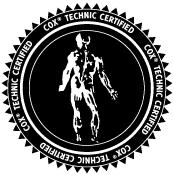Understanding the Science Behind Richmond Disc Degeneration Prediction
For those experiencing back or spine pain, knowing the ways of disc degeneration (a common cause of discomfort) can be both insightful and empowering. While disc degeneration is often thought of as a progressive (and even unavoidable) aging process, new research has given hope as it shares predictive factors, early indicators, and the influencing factors once it starts. Johnson Chiropractic gets this and is here to help our Richmond chiropractic patients!
FACTORS AFFECTING LUMBAR SPINE INTRADISCAL PRESSURE
Interestingly, the pressure within intervertebral spinal discs has a key role in their health. In a study by Liebsch and Wilke (1), elements like age, direction of motion, and the current state of degeneration significantly influence intradiscal pressure. This pressure difference can interrupt the disc's internal environment, affecting its ability to absorb shock and maintain structural integrity. Understanding these conditions permits practical adjustments. For instance, altering movement mechanics or posture could diminish excessive strain on the lumbar discs, possibly decreasing the chance of damage. A goal of our Richmond chiropractic care!
EARLY CHANGES BEFORE DISC DEGENERATION
Research led by Rajasekaran et al. (2) has shown that cartilage endplate defects often come before visible disc degeneration. These micro-changes in the disc structure may initiate inflammation or hamper its ability to bring nutrients, leaving it vulnerable to future damage. The study also developed the “Integrated Total End Plate Score” to detect at-risk discs at earlier stages, offering hope for timelier intervention and prevention. This finding highlights the importance of a proactive approach. Regular Richmond chiropractic care and imaging (as needed) for high-risk individuals can detect issues before degeneration gets bad.
PROGRESSION OF DEGENERATION
Once disc degeneration starts, its development is multifaceted. Tsuchiya et al. (3) highlight that decreased nucleus pulposus signal intensity is a key indicator of worsening degeneration. Further, the loss of hydration and structural degradation puts the disc at risk of being less capable of handling stress, particularly during repetitive movements or high-impact activities. Taking care of yourself with low-impact exercise, eating well, keeping a healthy weight and seeing your [[targetlocation] chiropractor may slow this progress and improve overall spinal health.
BRIDGING RESEARCH AND RELIEF
CONTACT Johnson Chiropractic
By understanding the underlying factors and undergoing regular chiropractic care, Richmond back pain sufferers can take positive measures to protect their spine health and its discs. If you or a loved one experiences Richmond back pain or discomfort, consult with your Richmond chiropractor at Johnson Chiropractic.
Listen to this PODCAST with Dr. James Cox on The Back Doctors Podcast with Dr. Michael Johnson as he illustrates disc degeneration, its evolution and its relief and care with The Cox® Technic System of Spinal Pain Management.
Schedule your Richmond chiropractic appointment now to visit us!


